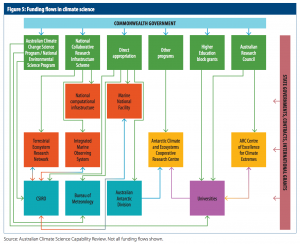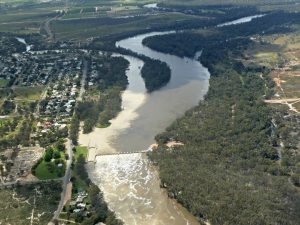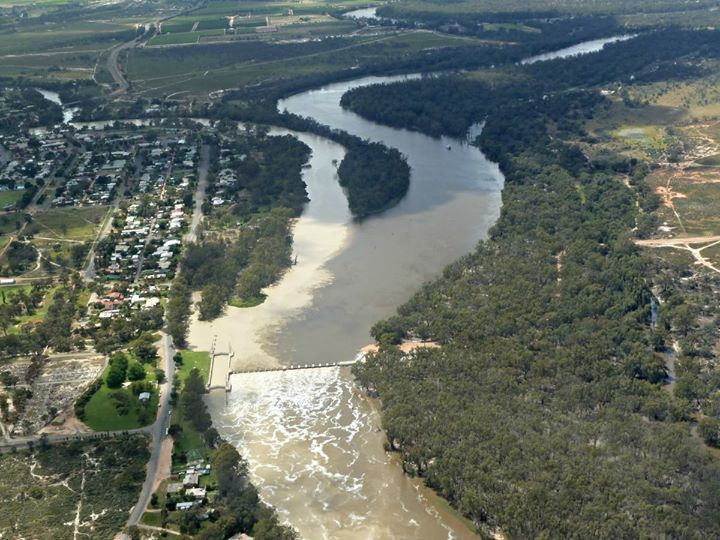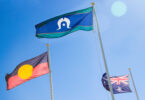A major scientists’ group says there just aren’t enough climate researchers in this country.
Professor Trevor McDougall, an Oceanographer from UNSW, led the Australian Academy of Science report.
He says there needs to be an increase of almost 80 staff in the country to bring the efforts up to a level that is justified by the needs of understanding and prediction.
Understanding and prediction refers to climate modeling, a specific area of climate science relevant to helping Australian resources and industries adjust to a changing climate.
The year long review was prompted by major restructuring at the CSIRO last year, which promised 100 job cuts but delivered only 30-40.

Why do we need more research positions?
Farmers and businesses will be hurt by under resourced climate research programs.
Professor McDougall says we already know about the global impact of climate change: reduce your fossil fuels emissions.
“That’s an international problem which we don’t really need to do much more research in Australia than we’re already doing” he says.
Climate OL
No Description
Coastal communities also need reliable, localised information to predict flooding risk, Professor McDougall says.
“We have a lot of skill around the world in terms of predicting global sea level rise but actually understanding it and predicting it at a statewide scale is difficult,”

The Murray-Darling Basin, Australia’s most important Agricultural region. Source: Flickr
The localised climate information we need from researchers in Australia is not replaceable by global research, Professor McDougall says.
“It’s not on their radar to worry about the productivity of the Murray-Darling basin, from which we get 40% of our food, it’s just irrelevant to them, so we need this research.”
Former CSIRO climatologist Graeme Pearman told the Conversation lack of regional climate predictions could have real consequences for Australian communities.
“We are not in a position at this stage to be able to confidently anticipate the water resource issues within the [Murray-Darling] basin. This is an enormous economic issue for Australia; it’s the food basin of the country,” he said.
Other top scientists say not listening to the recommended resource increase will lead to “expensive mistakes”.
The Federal Minister for Energy and Environment Josh Frydenberg provided the City Journal with the following comment.
“As the report recognises, there are 420 climate scientists doing important work across federal agencies like the CSIRO, the Bureau of Meteorology, the Institute of Marine Science and Geoscience Australia as well as in our universities.”
Professor McDougall agrees that many areas of climate science, particularly those in the University research sector, are adequately resourced.
The Federal Minister also highlighted the coalition’s financial investment in climate research.
“The Turnbull Government continues to make a significant financial investment in climate science with a new CSIRO Climate Science Centre in Hobart with 40 staff, a $37 million investment in long-term climate science monitoring capability, a $23.9 million investment in a climate change hub in the National Environmental Science Program and a $255 million commitment as part of the Australian Antarctic Strategy which places a significant emphasis on climate science related research.”
Professor McDougall welcomes these investments, yet points out the deterioration of the climate change hub in the National Environmental Science Program.
“That is a mere fraction of what it was three years ago. So while he is at liberty to claim how many dollars are going into it, it’s actually a third of what it was three or four years ago.”
The Australian Academy of Science report was completed in December 2016, yet the report was released only yesterday.
In between the finish and the publication of the report, the Academy had conversations with the Federal Minister for Science and the Federal Minister for Energy and Environment.
“All we’re doing really is saying look while we have a lot of things in place, we’re still missing the last bit… if you’ve got 400 people in Australia, half of them at Universities, doing climate work, then asking for an extra 77 is not a huge deal,” Professor McDougall says.
“Yet if we don’t get them, we will never get this information at the scale our country needs for adaptation.”
The Government says the Academy of Australian Scientists report will be an important resource for their recently appointed National Climate Science Advisory Committee.






